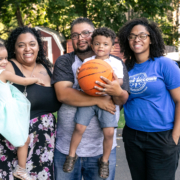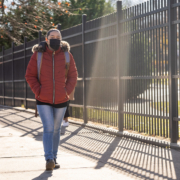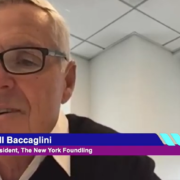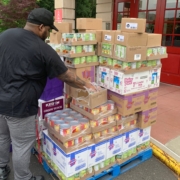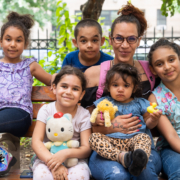By Peter Rizzo, Co-Chair of The New York Foundling Junior Board’s Corporate Engagement Committee
I love Christmas. I love the holidays and this season of giving. For three generations, it has been an extremely important part of my family’s tradition, starting with my grandfather, Thomas Kelly, and his lifelong connection to The New York Foundling. In the late 1930s when he was a young boy, my grandfather and his siblings were dropped off at The Foundling by their mother. She entrusted them into The Foundling’s foster care when she could no longer take care of them herself.
It is this personal connection that led me to join The Foundling’s Junior Board. I help plan The Foundling’s Blue Party each spring, and I have coached youth in the Mentored Internship Program. Simply put, even before I joined the Junior Board, The Foundling has always been a part of my life—especially during the holiday season.
My grandfather was placed in several different foster homes before finding his long-term childhood foster home, where he lived until he joined the U.S. Navy. From there, he went on to make a good life for himself and his family. My grandfather and grandmother married in 1952 and had four children. On Christmas Eve in 1960—as he laid out presents beneath his Christmas tree—he thought of all the children living in foster homes or in homes lacking stability and comfort who would not have any gifts to open the next morning.
After a conversation with my grandmother, he drove into Manhattan that Christmas Eve and delivered presents to The Foundling. My grandfather was a ‘foundling’ himself, and understood what it felt like growing up with certain unanswered questions, so he gave back to the organization that helped him find a home, a family, a bright future, and lifetime of holiday traditions and celebrations.
And each subsequent year, my grandparents continued to send gifts to The Foundling during the holiday season. This quickly became family tradition—donating gifts to The Foundling each December. We have done this every year for as long as I can remember.
What started as an intimate tradition amongst my immediate family has now grown to include friends, friends of friends, and their families, as well. In 2019, my family and I had more than 100 people over for a holiday party and each guest brought at least one gift to give to The Foundling.
It is amazing how much the tradition has come to mean to me, as well as so many other people in my life. Everyone looks forward to this party every year. It is their way of acknowledging how fortunate we all are. Unfortunately, it is the first time since 1960 that the party will be cancelled. However, my family and friends were still able to donate gifts through Amazon to ensure the children and families of The Foundling were not forgotten. I look forward to continuing this tradition for years to come!
Happy Holidays!

